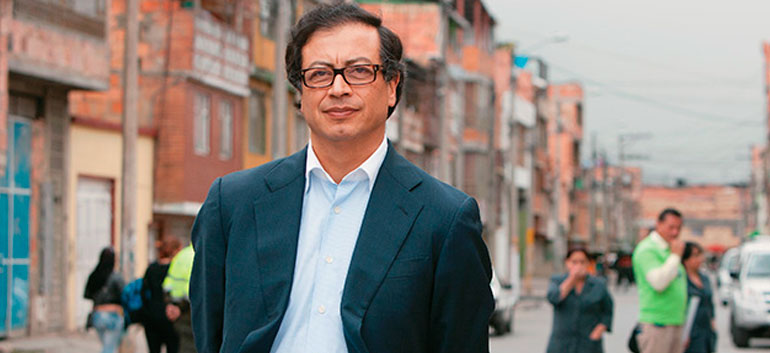A Bogota court on Tuesday ordered Colombia’s President Juan Manuel Santos to reinstate the former mayor of Bogota, Gustavo Petro, who Santos controversially dismissed one month ago.
According to newspaper El Espectador, the court gave Santos 48 hours to reinstate the former mayor.
In an announcement on Twitter, Gustavo Petro acknowledged the ruling, stating, “This time the Superior Court of Bogota has protected political rights, which are also human rights, both of Bogota’s citizenry and my own.”
MORE: Reinstatement of Bogota’s former mayor ‘probable:’ national magazine
Gustavo Petro, Bogota’s former mayor, was removed from office in December 2013 due to alleged “irregularities” that were uncovered in his attempts to transfer the city’s privatized garbage collection system into public hands. This allegedly resulted in 9,920 tons of uncollected garbage left on the streets.
As a result, Colombia’s Inspector General, Alejandro Ordoñez, decided to dismiss the city’s mayor and ban him from serving in public office for 15 years.
Since his dismissal, Petro has appealed the decision many times, though all of his “tutelas” or writs of protection were denied by Colombia’s State Council.
Petro has called his dismissal politically motivated and “arbitrary”.
MORE: Not so fast: International Court rushes to Bogota Mayor’s aid and demands Petro stay in office
The US-based IACHR intervened on Petro’s behalf, declaring the dismissal to be a violation of his political rights.
“The commission orders that Colombia immediately suspend the effects of the decision of December 9 2013, emitted and ratified by the Inspector General’s office January 13, 2014, in order to guarantee the exercise of political rights of Mr. Gustavo Francisco Petro Urrego and allow him to complete the period of time, for which he was elected to serve as the mayor of Bogota on October 30 2011,” said the IACHR in a communication released in mid-March.
MORE: Santos ignores international ruling, replaces Bogota mayor
President Santos initially approved Petro’s removal from office, dismissing the IACHR ruling that demanded Petro be allowed to serve out his term.
Santos argued that the removal of the mayor of the country’s capital was consistent with all Colombian laws and that international law defending citizens’ rights to elect and be elected did not apply.
Santos has since said however that if a domestic court orders him to reinstate Petro, he would gladly do so.
“If a judicial authority comes and tells me to reinstate Mayor Petro, I will follow their requests and reinstate him, because that is my obligation. That is what I swore to do,” he said.
MORE: Santos vows to reinstate dismissed Bogota Mayor if Colombian court orders to do so
MORE: Bogota’s new mayor expects short stay in office
Petro had originally been replaced with an interim mayor, Labor Minister Rafael Pardo.
On Monday however, Maria Mercedes Maldonado — belonging to the same political party as the dismissed mayor — was appointed mayor of Bogota by President Juan Manuel Santos. Maldonado had been the Secretary of Planning under Petro’s administration.
The newly appointed mayor said that she does not expect to stay in office very long, hoping for Petro to be reinstated.
“We are awaiting court decisions in the Council of State which may favor [former] Mayor Petro, who could return. It is the best thing that could happen to Bogota,” the capital’s new mayor said.
Gustavo Petro has been transformed from a figure relatively unknown outside of Bogota into Colombia’s internationally recognized political martyr in just five months and the saga is set to continue.
The politician was once a member of the demobilized guerrilla group M-19.
The mayorship of Bogota is widely considered to be the second most important position in Colombian politics.
Sources
- Tribunal Superior ordenó restituir a Gustavo Petro a la Alcaldía de Bogotá (El Espectador)
- @petrogustavo (Twitter)


